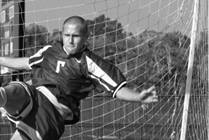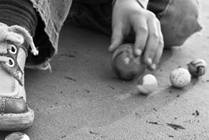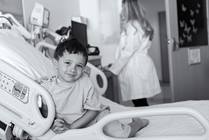Search Results
Viewing: 581-590 of 1469 | All

Condition
Sports Medicine: Anterior Tibialis Tendonitis
Anterior tibialis tendonitis is an injury of the anterior tibialis tendon in the front of the ankle where it meets the foot. The tendon is important in pulling the foot up (dorsiflexion), lifting the foot off the ground while running, and in turning the foot inward (inversion).

Condition
Sports Medicine: Deltoid Ligament Sprain
The deltoid ligament is a triangle-shaped ligament on the inner ankle which is stronger and more compact than the outer ligaments. Deltoid injuries are very rare and most happen with eversion or along with a high ankle sprain.

Condition
Lichen Striatus
Lichen striatus is a rash that appears as pink or lightly-colored, scaly, flat bumps. Over time, these bumps come together to form a line or band on the skin.

Condition
Amenorrhea
Amenorrhea is when a girl or woman does not have her period. Primary amenorrhea is when periods have not started by age 16. Hormone levels and anatomical problems can cause amenorrhea.

Condition
Tinea Versicolor
Tinea versicolor (TIN ee uh VUHR sih kuhl er) is a common rash caused by the overgrowth of microscopic yeast on the skin's surface. The rash looks like small, scaly spots.
Article
Vagus Nerve Stimulation (VNS)
The Vagus Nerve Stimulator treats epilepsy that is not controlled with medicine. The VNS prevents or lessens the frequency of seizures by sending mild electrical impulses through the vagus nerve to the brain.
Mosquito-Borne Diseases
Mosquito-borne diseases are spread to people and animals by the bite of an infected mosquito.

Condition
Asthma
This Helping Hand™ covers asthma, which is a lung disease that can cause breathing problems. If your child has asthma, the airways in their lungs overreact to certain things, called triggers.

Article
During Your Stay
You will have questions during your child's stay at Nationwide Children's Hospital. We are here to put your mind at ease and share what you need to know.
